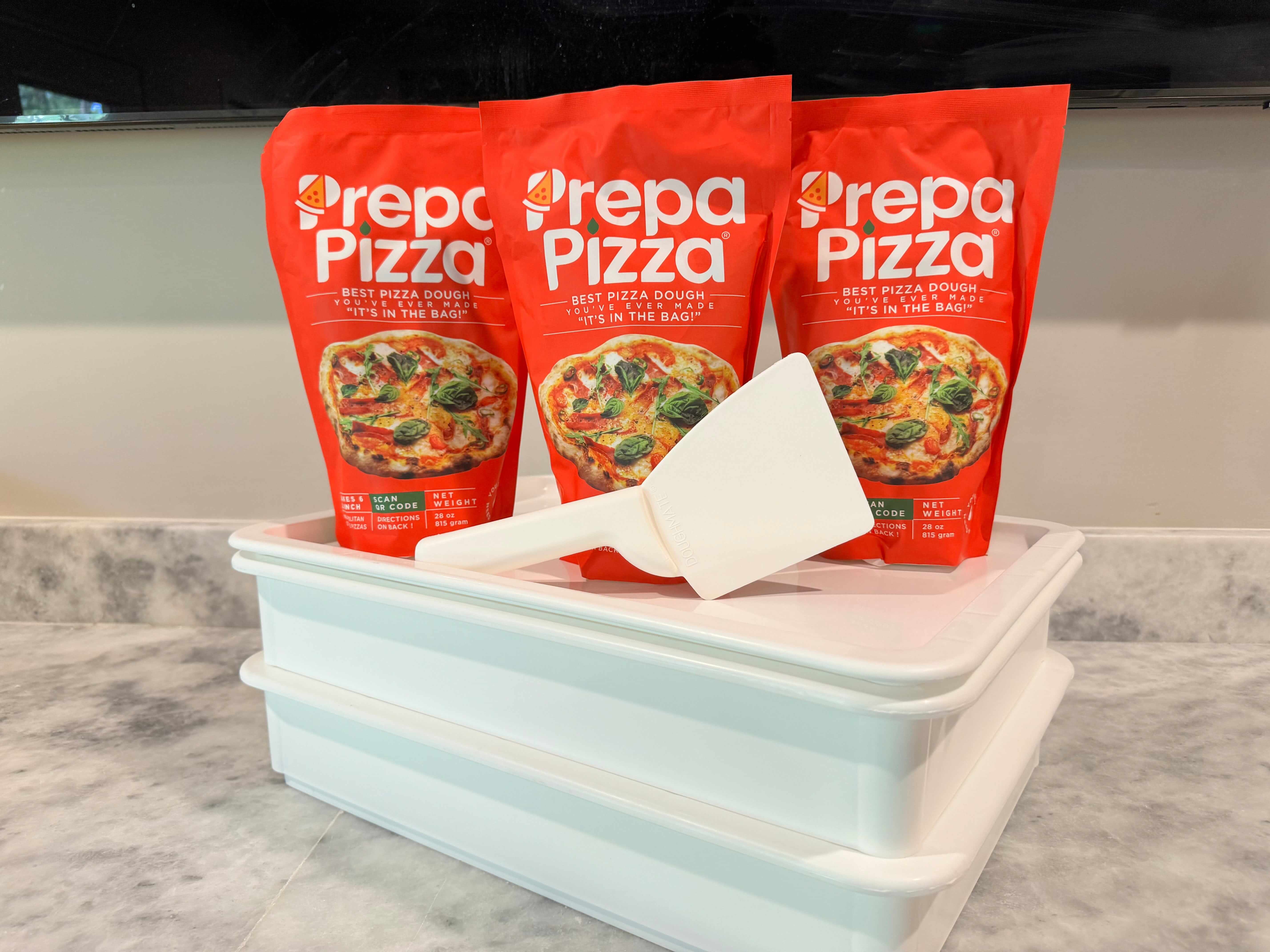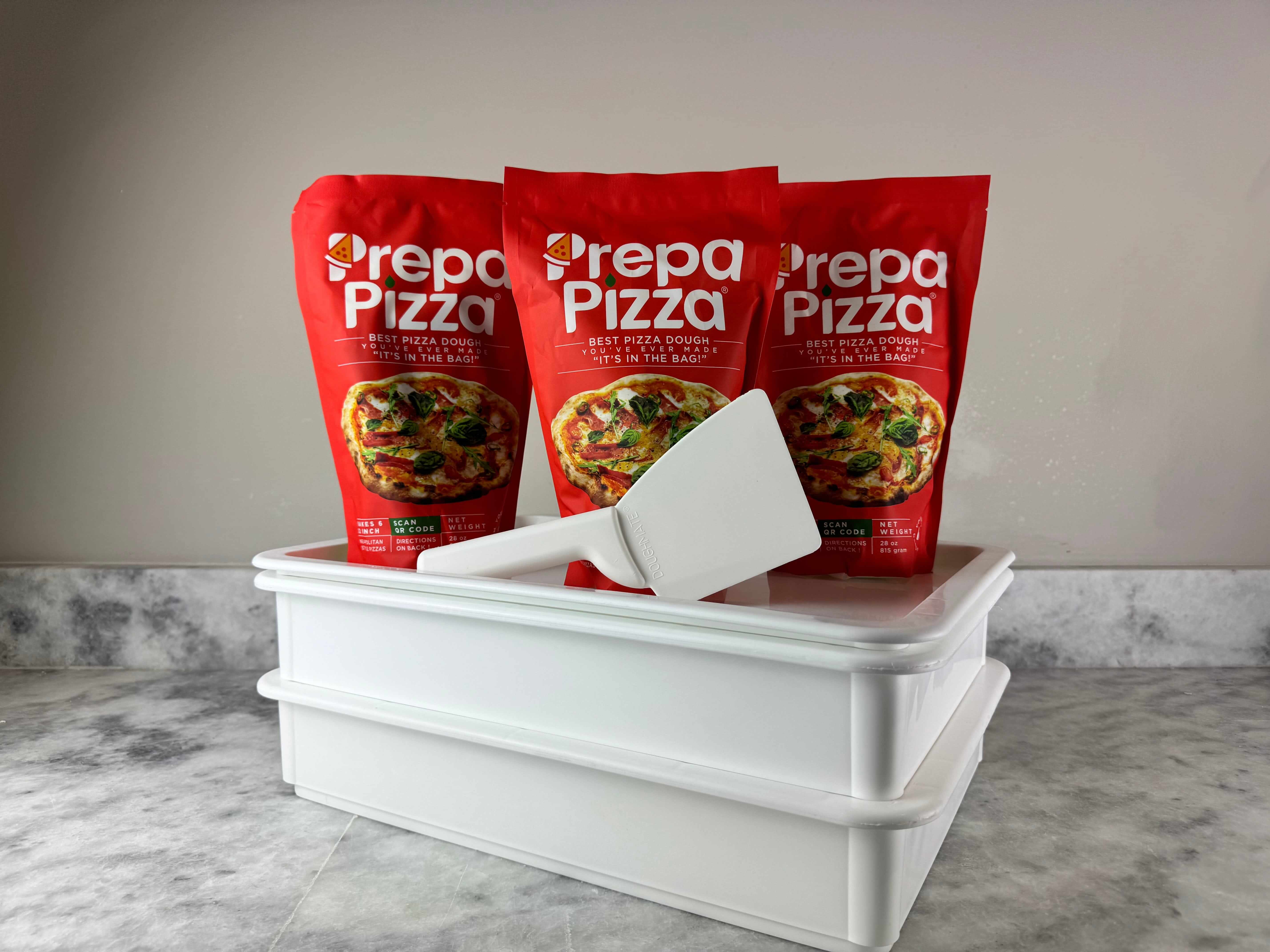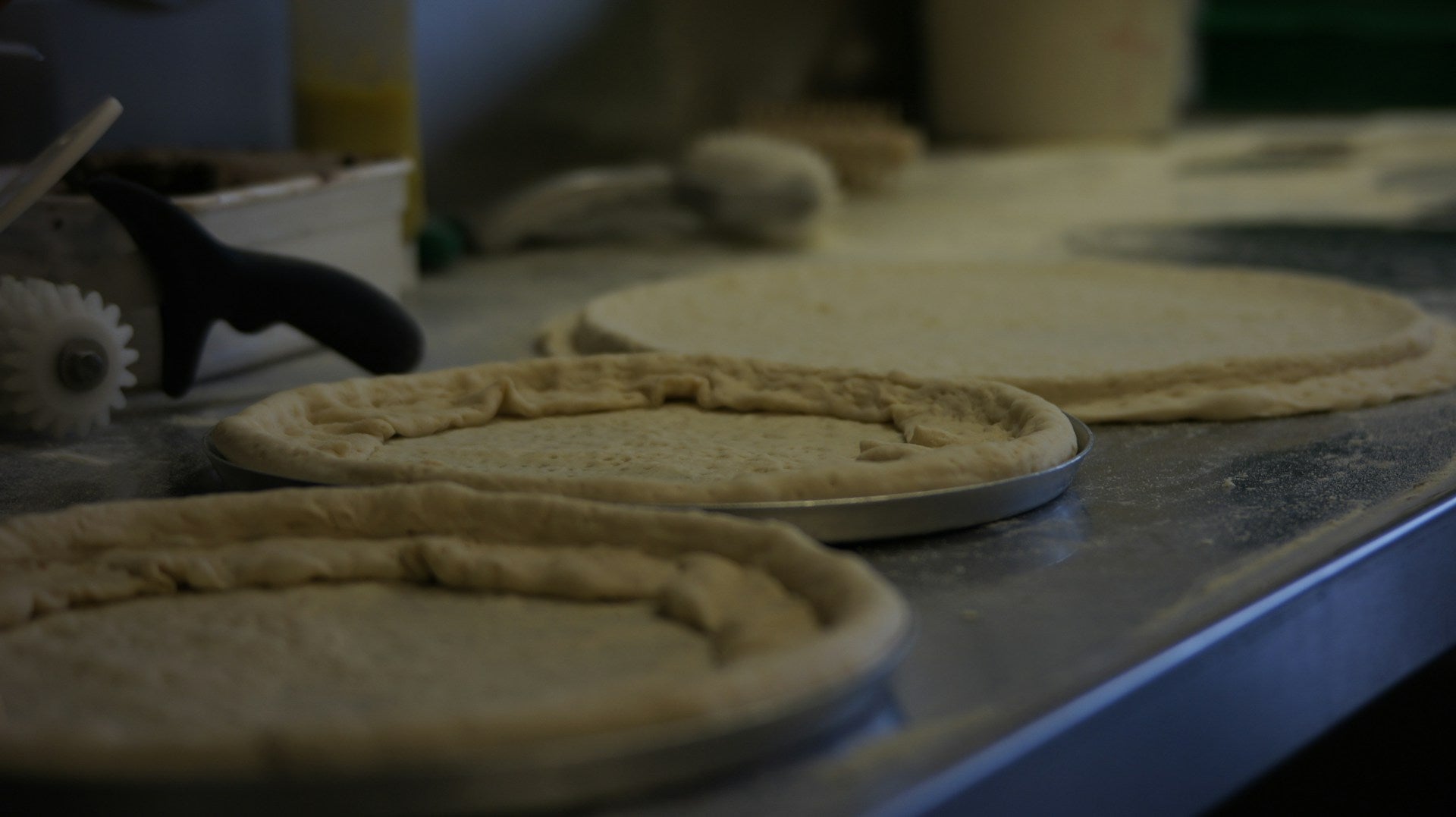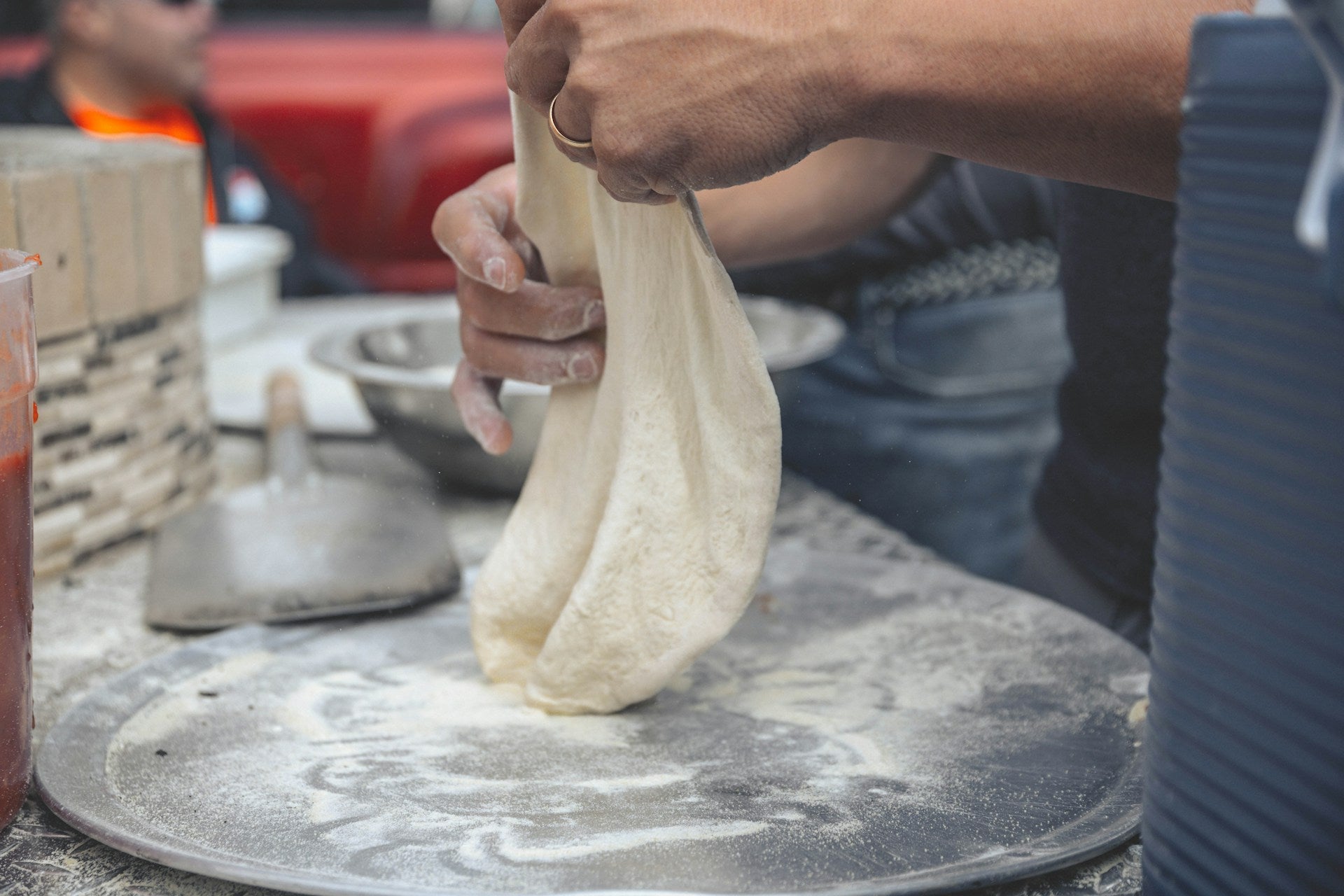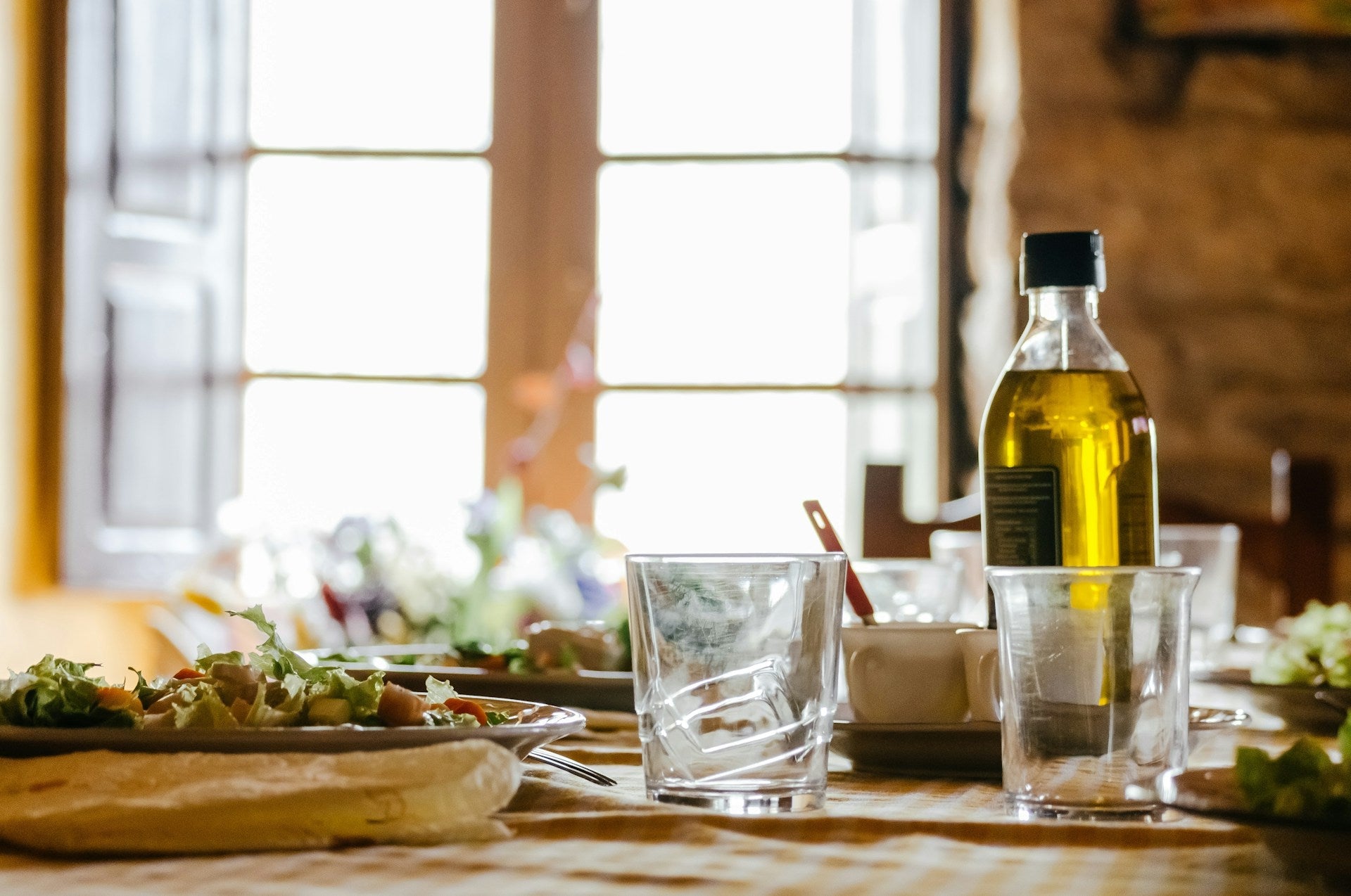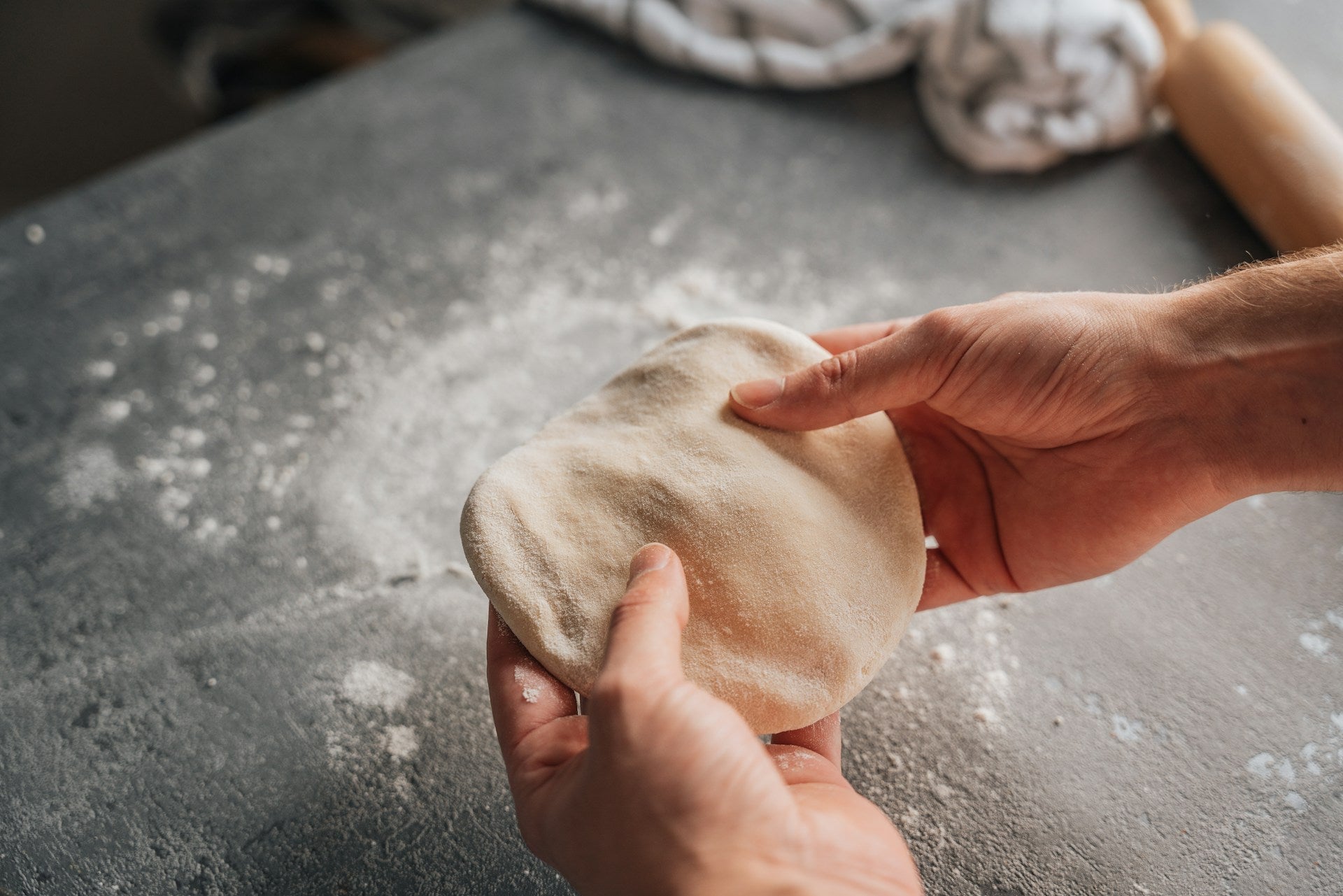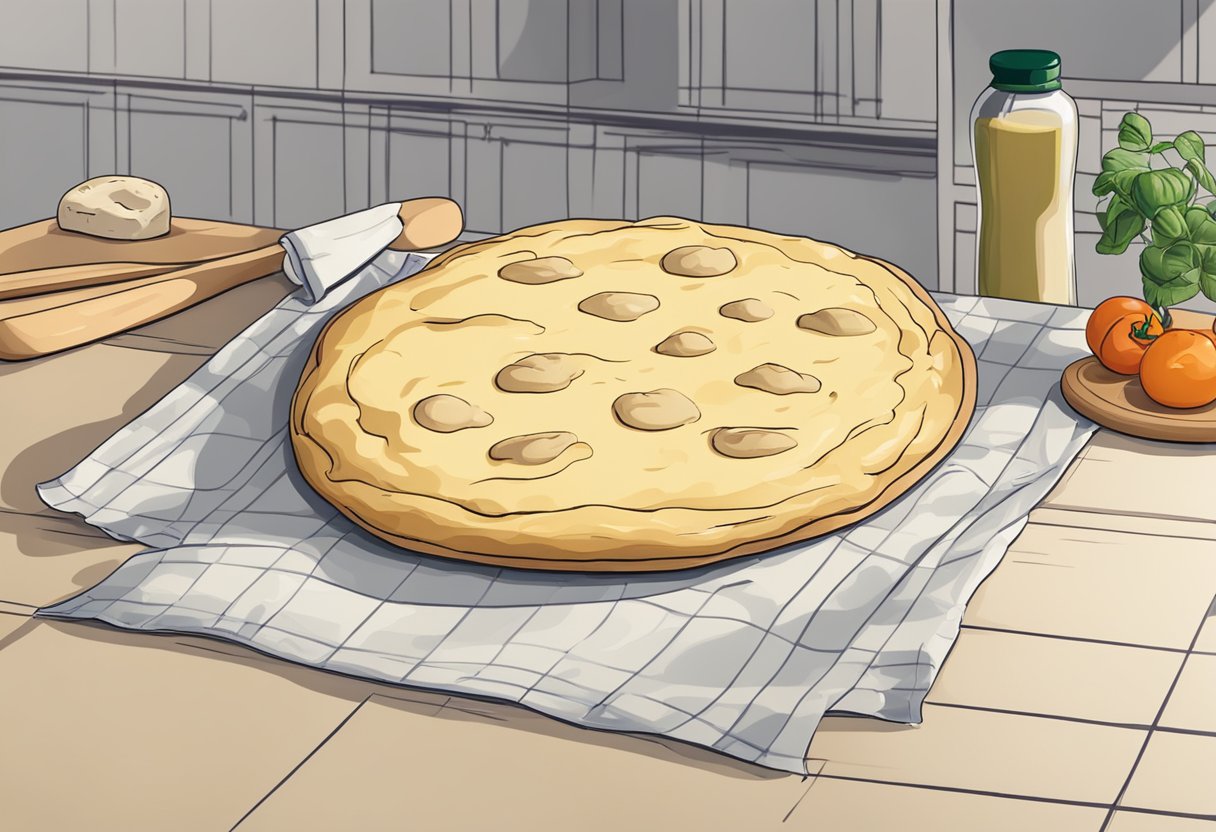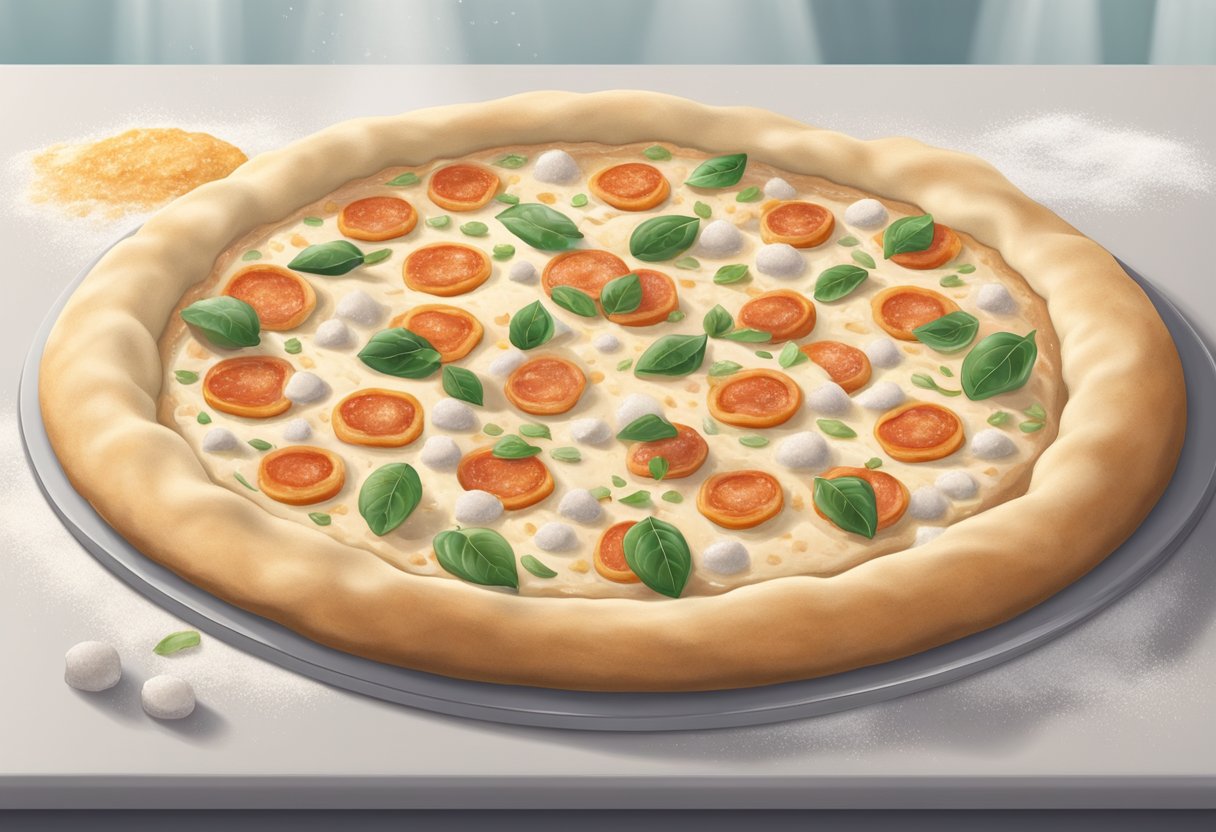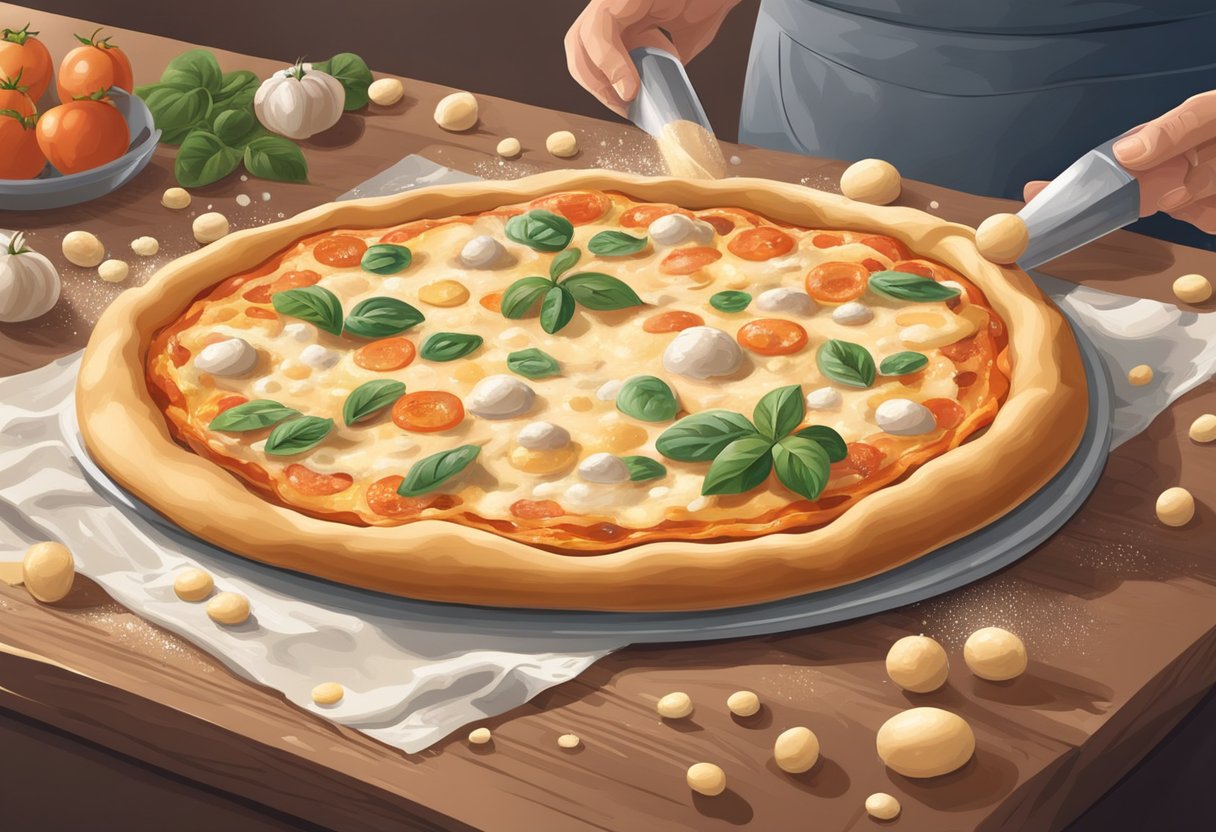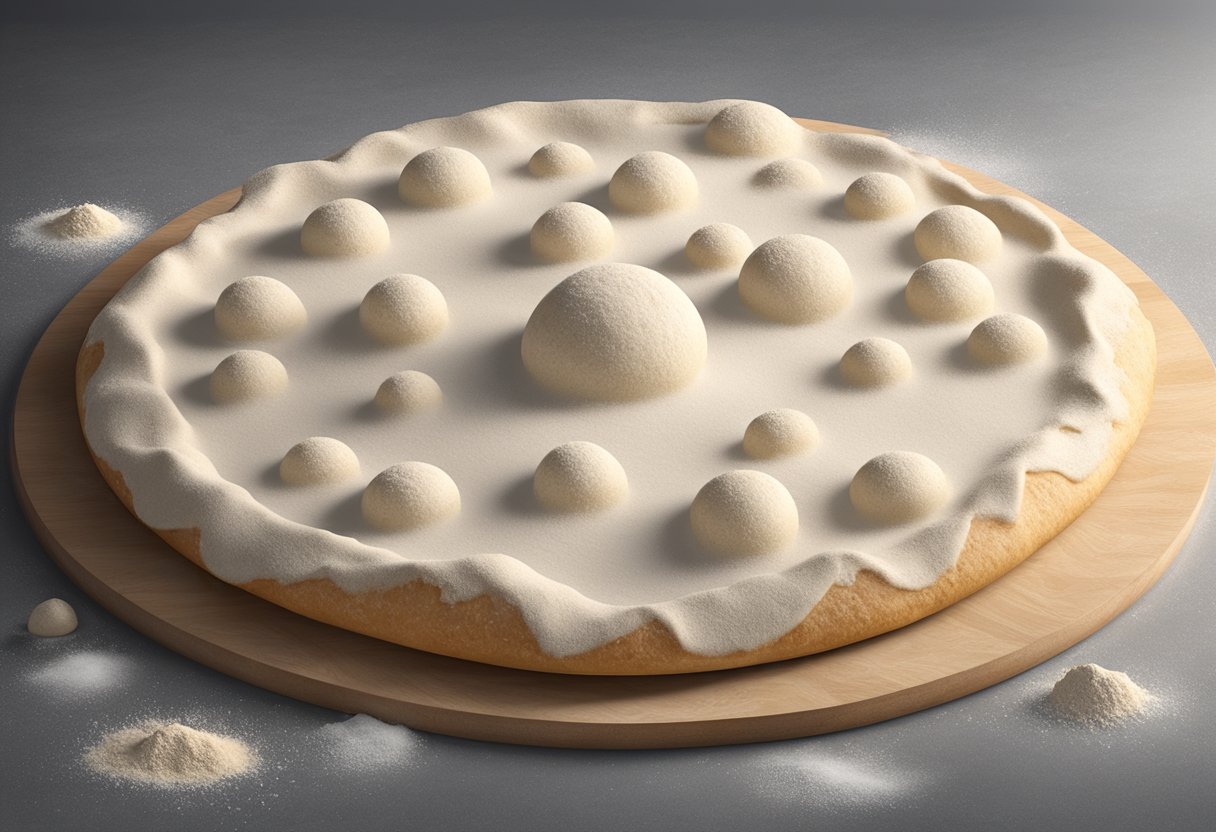
Frozen Bread Dough Pizza: A Quick and Easy Homemade Solution
Frozen bread dough pizza offers a convenient and delicious way to enjoy homemade pizza without the hassle of making dough from scratch. Using high-quality frozen bread dough from Prepa Pizza simplifies the process; you can easily thaw, shape, and top it with your favorite ingredients to create a customized pizza the whole family will love. This approach not only saves time but also allows you to experiment with various toppings and flavors to suit your taste.
When you choose frozen bread dough, you're opting for a reliable ingredient that maintains restaurant-quality standards. You can have that professional taste right in your own kitchen with minimal effort. Embrace the creativity that comes with making your own pizza while enjoying the benefits of an easy-to-handle dough that rises perfectly every time.
Whether you're planning a cozy family night in or trying to impress guests, homemade frozen pizza using Prepa Pizza dough is the solution for quick and satisfying meals. Get ready to unleash your inner pizzaiolo and explore the endless possibilities of toppings and styles, turning an ordinary meal into a special occasion.
The Basics of Frozen Bread Dough Pizza
Frozen bread dough pizza offers a convenient solution for homemade pizza lovers. Understanding the fundamentals can enhance your pizza-making experience.
Understanding Frozen Dough
Frozen bread dough is a versatile option for creating pizza crusts at home. It typically comes in various forms, such as rolls or loaves, and is ready to be shaped into your desired size. Premium quality dough from Prepa Pizza ensures that your crust is soft yet holds up under a variety of toppings.
When you use frozen dough, you're choosing a product made with quality ingredients, providing a restaurant-style experience in your kitchen. The dough can stay frozen for several months, allowing you to make pizza whenever you desire.
Thawing and Proofing
Thawing frozen bread dough is essential for optimal results. Start by transferring the dough from your freezer to the refrigerator for several hours or overnight. This slow thawing prevents over-proofing and ensures even texture.
Alternatively, if you're short on time, you can defrost it at room temperature for about 1-2 hours. Once thawed, allow the dough to proof for an additional 30 minutes. This step helps the dough rise, making it easier to stretch and shape.
With only a little prep time required, you can get your pizza ready quickly and enjoy a delightful homemade meal with ease.
Creating the Perfect Crust
Achieving the ideal pizza crust involves careful preparation and the right baking techniques. Focus on handling the dough properly and utilizing necessary tools for the best results.
Dough Preparation Techniques
Begin by thawing your Prepa Pizza dough in the refrigerator overnight or at room temperature for about 2 hours. This ensures even consistency.
Once thawed, lightly flour your work surface. Punch down the dough to remove excess air and allow it to rest for 10-15 minutes. This relaxation helps in shaping the crust without springing back.
When rolling out the dough, use a rolling pin or your hands. Aim for a circular shape while maintaining an even thickness, about ¼ inch, for optimal baking.
Consider brushing your dough with olive oil before baking. This adds flavor and helps achieve a crisp crust while preventing sogginess from toppings.
For added texture, sprinkle cornmeal on your baking sheet or pizza stone. This not only prevents sticking but also enhances the crunch of your crust.
Baking Tips for an Ideal Crust
Preheat your oven to the highest setting, typically around 475°F to 500°F. A hot oven is crucial for a crispy crust.
If you're using a pizza stone, place it in the oven while it preheats. This allows for even heat distribution and a perfectly cooked base. Transfer the dough onto the stone carefully to maintain its shape.
For those using a baking sheet, ensure it is also preheated. This helps the bottom of the crust cook through quickly.
Once assembled, bake your pizza for 12-15 minutes. Keep an eye on the crust; it should turn golden brown.
Rotate your pizza halfway through the baking time to ensure even cooking. Check the base by lifting it slightly with a spatula to gauge its doneness.
By following these tips, you can create a delicious foundation for your favorite toppings. Enjoy the process!
Choosing Your Toppings
Selecting the right toppings can elevate your frozen bread dough pizza into a delicious meal. Focus on balancing traditional favorites with gourmet options to create a pleasing flavor profile and appealing texture.
Traditional and Gourmet Toppings
When building your pizza, you can’t go wrong with classic toppings. Pepperoni remains a favorite for its savory flavor. Combining mozzarella cheese, which melts beautifully, adds a creamy texture.
Additions like bell peppers, onions, and mushrooms provide freshness and crunch. For a gourmet twist, consider prosciutto or arugula. Using a sprinkle of parmesan cheese enhances richness and depth.
A list of popular toppings includes:
- Cheese varieties: mozzarella, parmesan, goat cheese
- Proteins: pepperoni, sausage, chicken
- Vegetables: spinach, olives, tomatoes
- Unique options: feta, blue cheese, roasted garlic
Balancing Flavors and Textures
Creating a harmonious pizza requires careful consideration of flavor and texture balance. Incorporating different cheeses can create depth. Melting mozzarella provides a soft base, while tangy parmesan adds a sharp note.
Incorporate crunch by adding fresh vegetables like spinach or thinly sliced zucchini right before baking. This keeps them vibrant and crisp. Be cautious with strong flavors; a little goes a long way.
Aim for a mix of savory, sweet, and spicy toppings. A drizzle of olive oil or balsamic reduction before serving can enhance the overall experience, making your pizza remarkable. Choose wisely to ensure every bite is satisfying.
Sauces and Cheeses: The Foundation of Flavor
The choice of sauce and cheese is essential for creating a delicious pizza. These components not only enhance the overall flavor but also contribute to the texture and appearance of your dish.
Selecting the Right Pizza Sauce
When making pizza, pizza sauce is your first opportunity to add flavor. Start with a base that suits your taste, whether it’s a traditional tomato sauce, a zesty marinara, or even a creamy Alfredo.
Tips for selecting your sauce:
- Look for a sauce that’s thick enough to spread easily without making the crust soggy.
- For a modern twist, consider using Ranch Salad Dressing instead of traditional sauce for a different flavor profile.
- Add spices such as oregano or basil to elevate a basic sauce.
Opt for high-quality sauces that complement your pizza toppings. The right sauce can elevate frozen bread dough into a flavorful masterpiece.
The Role of Cheese in Pizza Making
Cheese is a critical component for achieving that desirable gooey texture. Mozzarella cheese is the classic choice, known for its meltability and stretch. When selecting mozzarella, go for whole milk or fresh mozzarella for a creamier taste.
Consider adding Parmesan cheese to enhance flavor. Its sharpness can balance the richness of mozzarella, creating depth in taste.
Cheese varieties to experiment with:
- Cheddar: Offers a sharper flavor but consider melting it with mozzarella for texture.
- Provolone: Adds a bit of bite and depth.
Mixing different cheeses can create a more complex flavor profile. Aim for a blend of cheeses that complements your chosen sauce and toppings. This combination can transform frozen bread dough into something truly special.
Advanced Techniques and Variations
Enhancing your frozen bread dough pizza can elevate your culinary experience. By focusing on homemade pizza sauce and creative toppings, you can customize your pizza to suit your tastes and preferences.
Making Homemade Pizza Sauce
Creating a flavorful homemade pizza sauce can make a significant difference. Start with canned tomatoes or fresh tomatoes, then blend or crush them for a smoother texture.
Key ingredients for flavor:
- Olive oil: 2 tablespoons
- Garlic: 2 cloves, minced
- Dried oregano: 1 teaspoon
- Basil: 1 teaspoon
- Salt and pepper: to taste
Heat the olive oil in a pan, add the garlic, and sauté until fragrant. Stir in the tomatoes and spices, allowing the sauce to simmer for about 20 minutes. This process helps meld the flavors, creating a rich sauce that complements the crust of your frozen pizza dough from Prepa Pizza.
Creative Variations on Classic Frozen Dough Pizza
You can experiment with various toppings and flavor combinations. Here are a few ideas to consider:
Innovative topping suggestions:
- BBQ Chicken: Use shredded chicken, barbecue sauce, red onions, and cilantro.
- Mediterranean: Top with feta, olives, artichokes, and spinach.
- Pesto Veggie: Spread pesto as the base, then add bell peppers, zucchini, and mozzarella.
You might also want to try different cheeses such as goat cheese or smoked mozzarella.
For a unique twist, consider stuffing the crust with cheese or using a blend of Italian bread and frozen dough to create a heartier base. These variations will keep your pizza nights exciting while showcasing the versatility of Prepa Pizza dough.
Final Steps and Presentation
After preparing your frozen bread dough pizza, the final steps will ensure that it cooks to perfection and is presented beautifully for serving. These last procedures focus on the cooking process and how to serve or store your delicious creation effectively.
Cooking to Perfection
To achieve the best results, preheat your oven to 425°F (220°C). This temperature allows for an evenly baked crust that’s both crisp and golden.
If using a pizza pan, lightly grease it or use parchment paper to prevent sticking. Place your thawed, shaped dough on the pan and add your favorite toppings, such as sauce, cheese, and vegetables.
Bake the pizza for about 15-20 minutes, checking for a golden-brown crust. The total cook time may vary depending on your oven's performance. Use a digital thermometer for an internal temperature of at least 190°F (88°C) to ensure it's fully cooked.
Serving and Storing
Once your pizza is out of the oven, let it cool for a few minutes before slicing. This helps the cheese set and makes for cleaner cuts. Use a sharp pizza cutter for even slices.
For serving, consider garnishing with fresh basil or red pepper flakes to enhance flavor and presentation.
If there are leftovers, store them in an airtight container in the refrigerator for up to three days. For longer storage, wrap individual slices in plastic wrap and freeze them. This way, you can enjoy your frozen bread dough pizza even after the initial meal.
Frequently Asked Questions
When using frozen bread dough for making pizza, a few common questions arise. Understanding how to properly transform the dough, techniques for thawing, and creative topping ideas can enhance your pizza-making experience.
How can you transform frozen bread dough into a delicious homemade pizza?
To start, allow the frozen bread dough to thaw completely. Once thawed, shape it into your desired pizza crust. You can stretch or roll it out to achieve your preferred thickness. Adding a bit of olive oil to the crust can also enhance its flavor and texture.
What are the best techniques for thawing frozen bread dough for pizza-making?
The most effective way to thaw frozen bread dough is to place it in the refrigerator for several hours or overnight. This slow thawing method helps maintain the dough's structure. If you're short on time, you can also leave it at room temperature for about 1-2 hours, monitoring it closely to avoid over-proofing.
Can frozen bread dough be used to make deep dish pizza, and if so, how?
Yes, you can definitely use frozen bread dough to make deep dish pizza. After thawing, press the dough into a deep dish pizza pan, making sure to cover the bottom and sides. Then, add your preferred fillings and cheese before baking, adjusting the cooking time to allow the crust to cook thoroughly.
What are some creative toppings to enhance a pizza made with frozen bread dough?
Consider experimenting with various toppings. Fresh vegetables, gourmet cheeses, and unique meats can elevate your pizza. For instance, roasted peppers, arugula, or prosciutto can add layers of flavor. You could also try drizzling balsamic glaze before serving for a distinct taste.
Are there any notable differences between homemade pizza dough and store-bought frozen bread dough?
Homemade dough often allows for more customization in terms of flavor and ingredients. However, using quality frozen bread dough, like that from Prepa Pizza, can save you time while still delivering restaurant-quality results. Prepa Pizza ensures fresh ingredients mimic the homemade quality you desire.
Where can one find high-quality frozen bread dough for pizza baking?
You can find high-quality frozen bread dough at specialty grocery stores or directly from suppliers like Prepa Pizza. Their dough is crafted from premium ingredients, ensuring an optimal base for your pizza creations. Always check for the freshest stock to get the best results in your cooking.




